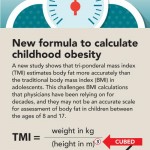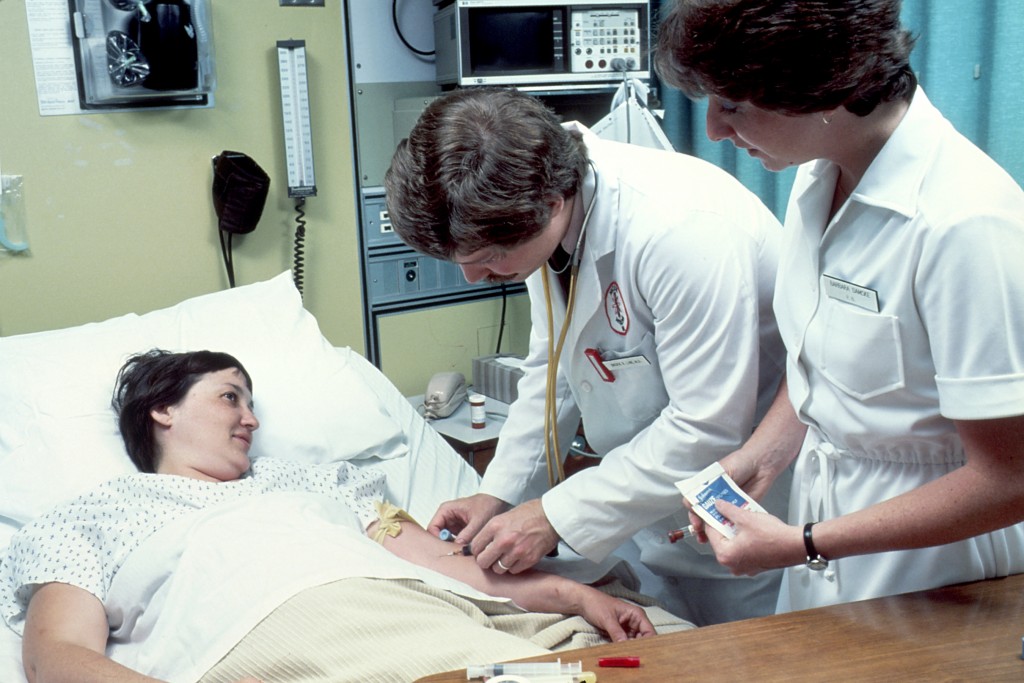Vitamin B Supplements May Protect Kidneys in Type 1 Diabetic Children
Vitamin B deficiency is associated with an increased risk of kidney damage in people with type-1 diabetes, but Vitamin B supplements may help preserve kidney function.
Study: Obesity Independently Impacts Prostate Cancer Screening
When interpreting prostate cancer screening test results, physicians should consider the impact of a patient's body mass index, regardless of race.
Researchers To Pinpoint Relationship Between Obesity-Associated Diabetes And Heart Disease
Expert will examine how obesity-associated diabetes leads to cardiovascular disease, in hopes of ultimately breaking this dangerous progression.
Pre-Pregnancy Weight Increasing, Bringing More Risk, Complications
A growing number of women are overweight or obese when they become pregnant, a condition that is risky to both mother and baby.
Yogurt Lowers Stroke Risk, Helps with Diabetes and Hypertension
A new study in the American Journal of Hypertension details how higher yogurt intake is associated with lower cardiovascular disease risk among hypertensive men and women and can help with diabetes and hypertension.
New Data Show Fast and Significant Weight Loss With Xenical Sustained Over Time
The weight loss medication Xenical helps patients achieve rapid and sustained weight loss according to the results of a new study designed to reflect real world usage of Xenical in clinical practice.
Improving Physical Fitness, Insulin Sensitivity May Help Latino Children at Risk for Type 2...
Reducing insulin resistance and boosting the fitness of overweight Latino children at high risk for type 2 diabetes will be crucial in efforts to protect them from diabetes and heart disease, according to investigators.
Sugar Addiction: Brain Sugar Switch Discovered
Researchers have discovered what they are calling a brain sugar switch that may curb sugar addiction. Researchers at Technical University of Munich discovered that our...
Study Suggests High Consumption of Omega-3’s Reduces Obesity-Related Disease Risk
A study suggests that a high intake of omega-3 fats from fish helps prevent obesity-related chronic diseases such as diabetes and heart disease.
New Way to Spot Adolescent Obesity Better Than BMI
The body mass index calculations that physicians have been relying on for decades may not be accurate for assessing body fat in adolescents between...
Researchers Discover Key Mechanism that Causes Neuropathic Pain
Scientists have identified a key mechanism in neuropathic pain. This discovery could benefit millions of people with chronic pain from trauma, diabetes, shingles, multiple...
Vine May Be a Valuable Dietary Supplement for Metabolic Syndrome
A fast-growing vine that has gobbled up some 10 million acres in the Southeast, may prove to be a valuable dietary supplement for metabolic syndrome.
Food Costs, Convenience Predict Obese Women’s Fat Intake
Nutritionists trying to influence how much fat an obese woman might eat should take into account food prices, the time it takes to make a meal and the location of grocery stores, among other things.
Rate of Remission of Type 2 Diabetes Higher Among Patients with Long-Term Follow-up After...
In a study that included long-term follow-up of obese patients with type 2 diabetes, bariatric surgery was associated with more frequent diabetes remission and fewer complications than patients who received usual care.
Culprit Found for Increased Stroke Injury with Diabetes
Studies pinpointed a new mechanism involving a protein called plasma kallikrein that interferes with the normal clotting process in the brain following blood vessel injury with diabetes.
Tomatoes Found to Contain Nutrient Which Prevents Vascular Diseases
They are the most widely produced fruit in the world and now scientists in Japan have discovered that tomatoes contain a nutrient which could tackle the onset of vascular diseases.










